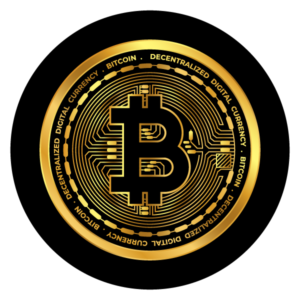Hottest Investments to Look Out For in 2022
The pandemic has impacted investments in unimaginable ways, with many proving to be resilient, and others seeming to emerge out of nowhere. With the year fast coming to a close, Cipher.Technologies weighs in on several of 2021’s most promising, and in some cases, surprising, investments, with a review of what’s hot for 2022.
The start of a new year is always a time to reset priorities, and that includes investments. The last few years have seen plenty of changes, with a global pandemic contributing to 2020’s volatile market, including a record closing high for the S&P 500 in February 2020, followed by a decline of 26% three weeks later. For 2021, some of the top trend predictions included the rebound of sectors such as travel and restaurant stocks, as people returned to “normal” life, and a growing awareness that the long bull market for tech stocks might not last forever. Or Zoom’s hegemony, for that matter. Investments linked to the digital world also took root in 2021, with many poised to surge into 2022, and well beyond.

ESG helps people invest in “socially responsible” companies and markets.
ESG — The Acronym on Investors’ Lips
By forming a partnership earlier this year with fintech company Ethic, which helps people invest in socially responsible companies, Prince Harry and Meghan Markle may have sprinkled a bit of royal pixie dust on the Environment, Social, and Governance sector, referred to as ESG, but they weren’t necessarily early adopters. The ESG principles of investing in sustainable and responsible companies with a solid governance framework originate with the PRI — Principles for Responsible Investments — a United Nations-backed, independent network of investors that launched in 2006. ESG, it seems, has been bubbling for some time.
In considering ESG investments, fund managers and analysts look at the Environment aspect from several vantage points, with some bypassing the worst offenders and others digging deep to find how companies are handling issues, including greenhouse gas emissions, energy efficiency, and carbon footprints. Analyzing the Social aspect, investors might research how a country or company deals with topics including human rights, gender diversity, and workers’ rights. And both environmental and social standards have a foundation in Governance, which zeroes in on the management of a company, and areas like corruption and litigation risks, and a firm’s acumen in solving conflicts.
Regulators are currently working to refine some of the more nebulous aspects of ESG investments by establishing clear definitions and standardized data. The EU Commission, for example, is examining how to make benchmark technologies and ESG disclosures transparent, and creating an EU taxonomy for sustainable activities, while the Securities and Exchange Board of India (SEBI) proposed revising a disclosure and investment structure for mutual fund schemes’ ESG investments, effective October 1, 2022. What with carbon offsetting becoming mainstream, Asia upping its investments in ESG, and several countries, including France, aiming to mobilize companies to report corporate biodiversity footprints, the ESG conversation is rapidly moving front and center.

The real estate market is coming out of the pandemic even stronger.
Real Estate Stands Strong
The annual Emerging Trends in Real Estate 2022 report, recently released by PwC and the Urban Land Institute, indicates that the real estate market was robust going into the pandemic, and is coming out even stronger, proving to be flexible and resilient. Despite blockers like rising costs, labor shortages, supply chain issues, and competition for materials, there’s a huge demand in some markets for industrial properties, with plenty of capital for investment. Rents have bounced back to record levels for multifamily properties, while the single-family rental market is considered a reliable bet for smaller or non-institutional investors. And small investors that understand their local areas are seeing success in the 1031 exchange market.
ESG is making a greater impact: PwC found that 82% of respondents consider ESG factors when making operational or investment decisions. Remote lifestyles have also prompted a shift away from costly cities: 8 out of 10 markets with the most potential for real-estate prospects are in the less-expensive Sunbelt, with Nashville, Tennessee topping the list.
And niche sectors with investor appeal are emerging, including increased demand for senior housing, student housing (which bounced back to pre-Covid norms), and storage spaces (which have historic low vacancy rates), plus an increased interest in life science labs and medical office buildings as the traditional office struggles finds its post-pandemic footing.

Some Pokémon trading cards command six figure prices among collectors.
Pokémon Cards — Not Just for Kids Anymore
Among the quirkier investments poking through in recent times: Pokémon trading cards, some of which command six-figure prices among avid collectors.
For rapper Logic, who made headlines last October by paying over $200,000 (including the 20% buyer’s premium) for a rare PSA 10 Base Set 1st Edition Charizard card, the investment comes down to living out a childhood-deferred dream. Another investor, YouTuber, and social media personality Logan Paul spent $200,000 on a box set of Pokémon cards and live-streamed himself opening his acquisition, garnering 6.3 million views.
Fandom can also push investors to extremes. A Georgia collector who admitted that he lied to obtain Covid-19 relief funds for his small business, used $57,789 of the money to buy a rare Pokémon trading card at auction; he recently pled guilty in U.S. District Court to one count of Wire Fraud.

Investors nostalgic for their ‘90s childhoods are also snapping up video games at jaw-dropping prices.
Old Computer Games, Comics and Other Nostalgic Ephemera
Pokémon isn’t the only pop culture phenomenon taking collectors down memory lane. Since the early days of the pandemic, the pop culture collectibles market has been exploding, with everything from sports memorabilia and movie rarities to old-timey comic books commanding top dollar. In November 2020, Dallas-based Heritage Auctions, for example, sold a copy of 1939’s Detective Comics in 7.0 condition, considered excellent for its age, for $1.5 million, three times the price it fetched in 2010.
Investors nostalgic for their ‘90s childhoods are also snapping up video games at jaw-dropping prices. In July, a copy of Super Mario 64 broke records for the highest price paid for a video game at auction, selling for $1.56 million. And Harritt Group an auction house in New Albany, Indiana, recently sold a sealed copy of a Super Mario Bros. 2 video game from 1988, found among other Nintendo classics, in an Indiana closet, for $88,550 at auction.
The pandemic may have set the stage for investment collecting, giving potential collectors more free time to explore their interests, but given the rarity of these cards and games, some experts consider the ephemera blue-chip investments.

Scarcity is part of the appeal of NFTs.
NFTs Skyrocket in Popularity
Scarcity is also part of the appeal of NFTs, which stands for non-fungible tokens. NFTs have been compared to works of art, but they’re more similar to stock certificates, with a “smart contract” that records the authenticity and digital property of value. Though built with the programming used for Bitcoin, Ethereum, and other cryptocurrencies, they are not the same thing. Crypto is “fungible” so it can be traded, with each unit equal in value. NFTs, which exist on a blockchain, are one-of-a-kind, each with a limited run and its own digital signature, so they can’t be exchanged for another. NFTs can be bought with U.S. dollars (or national currency) or cryptocurrency via a crypto trading platform.
While NFTs have been around since 2014, and traded since 2017, they truly caught fire in March 2021 when the British auction house Christie’s sold an NFT of “Everydays—The First 5,000 Days,” a work of art by digital artist Mike Winklemann (aka “Beeple”) for over $69 million. Sales of NFTs surged to over $2.5 billion in the first half of this year, and the buzz continues to build. Still, for NFTs that lack longevity, the bubble may pop or fizzle at some point.
There are plenty of NFTs to consider, too, such as NFT gaming, which includes projects like PUNKS Comics, an NFT comic book series; sports NFTs like NBA Top Shots; fashion NFTs such as Dolce & Gabbana’s Collezione Genesi, which sold at auction for $5.7 million on digital luxury marketplace UNXD, and even NFT stocks on Nasdaq. The list goes on…

Cryptocurrency users doubled from 100 million to 200 million worldwide in the first half of 2021.
Cryptocurrency Reaches for the Stratosphere
Cryptocurrency users doubled from 100 million to 200 million worldwide in the first half of 2021. A few small countries, including the Bahamas, have launched their own central bank digital currencies (CBDCs) and China is about to do the same. These moves all help digital assets continue to increase in value.
As per Statista, Bitcoin’s market capitalization hit an all-time high in April 2021, growing to over $1 billion USD, while the Ethereum market cap grew to over $250 billion. According to Coin Price Forecast, one unit of Bitcoin is expected to be worth $75,498 by the end of 2021, and $88,730 by the close of 2022. One unit of Ether, the token of the Ethereum network, is forecasted to be worth $6,254 by the end of 2021 and $6,932 by the close of 2022. Altcoins also contributed mightily to 2021’s leap in adoption: One unit of Binance Coin, the digital asset of Binance, is predicted to trade at $988 by the end of 2021, and $1,082 at the close of 2022. Cardano: $1.96 and $3.01, respectively; Dogecoin, $0.22 and $0.24; and Ripple (XRP), $1.00 and $1.37.
Could 2022 be the year when crypto becomes mainstream? It seems likely.

Metaverse is virtual worlds built with blockchain technology.
Metaverse Creates a Whole New World
Metaverse is virtual worlds built with blockchain technology. Facebook made sure that Metaverse was a household name when it changed its name to Meta and announced that it would invest $10 billion in metaverse development. But it’s not the only company to be building metaverse – there are dozens of platforms already out there some with millions of users such as Roblox, Epic, Star Atlas, Axie, YGG, and Unity.
Some of these platforms are owned by traditional companies so investing in metaverse is as simple as buying that company’s shares; for others you can buy crypto tokens to invest in your own stake in metaverse.
WEB3 is upon us and it’s not as confusing as it sounds. To give you some context, see how confused some people were by the invention of the internet in this clip of Bill Gates explaining it to David Letterman in 1995.
“To me, it’s all about metaverse. Pokémon, baseball cards, etc., go up and, depending on which Reddit thread says what. ESG has been around for a while and is nothing new. Investors need to pick their entry point to metaverse carefully, look at platforms as this is where decentralization begins.”
Gerald Banks, Founder and Managing Partner, cipher technologies
